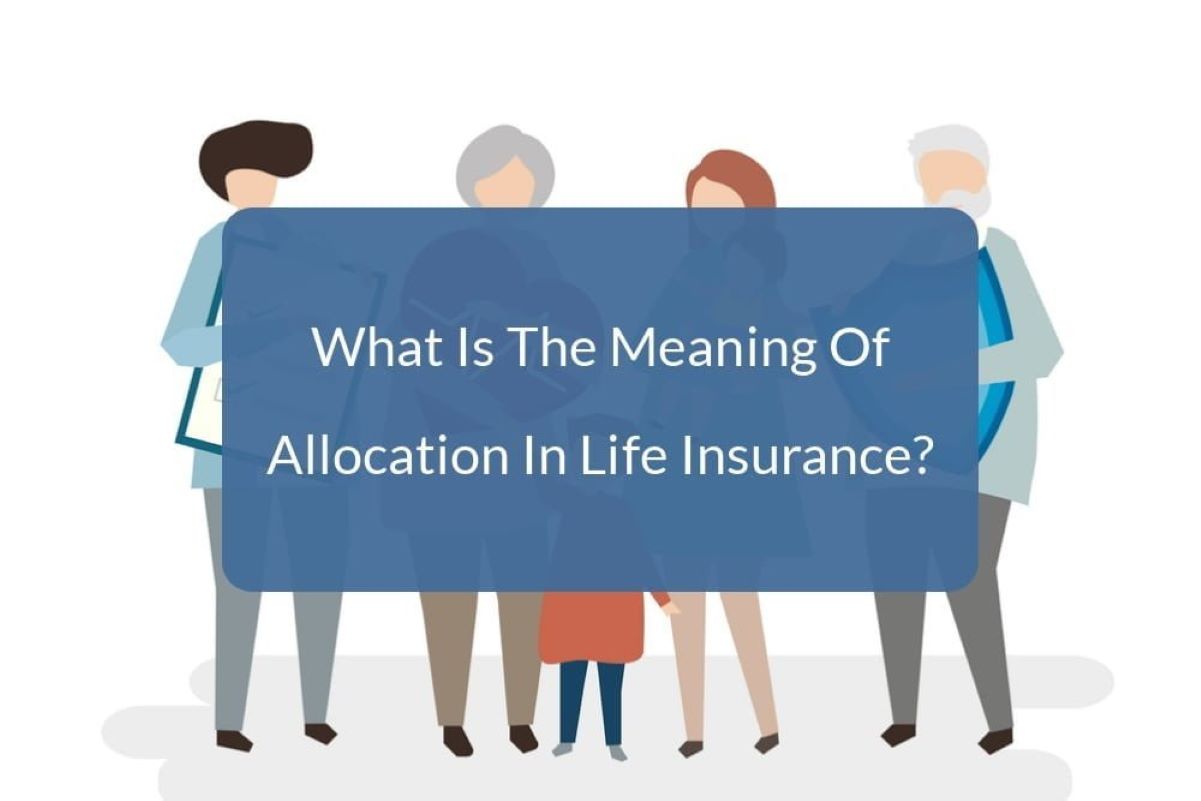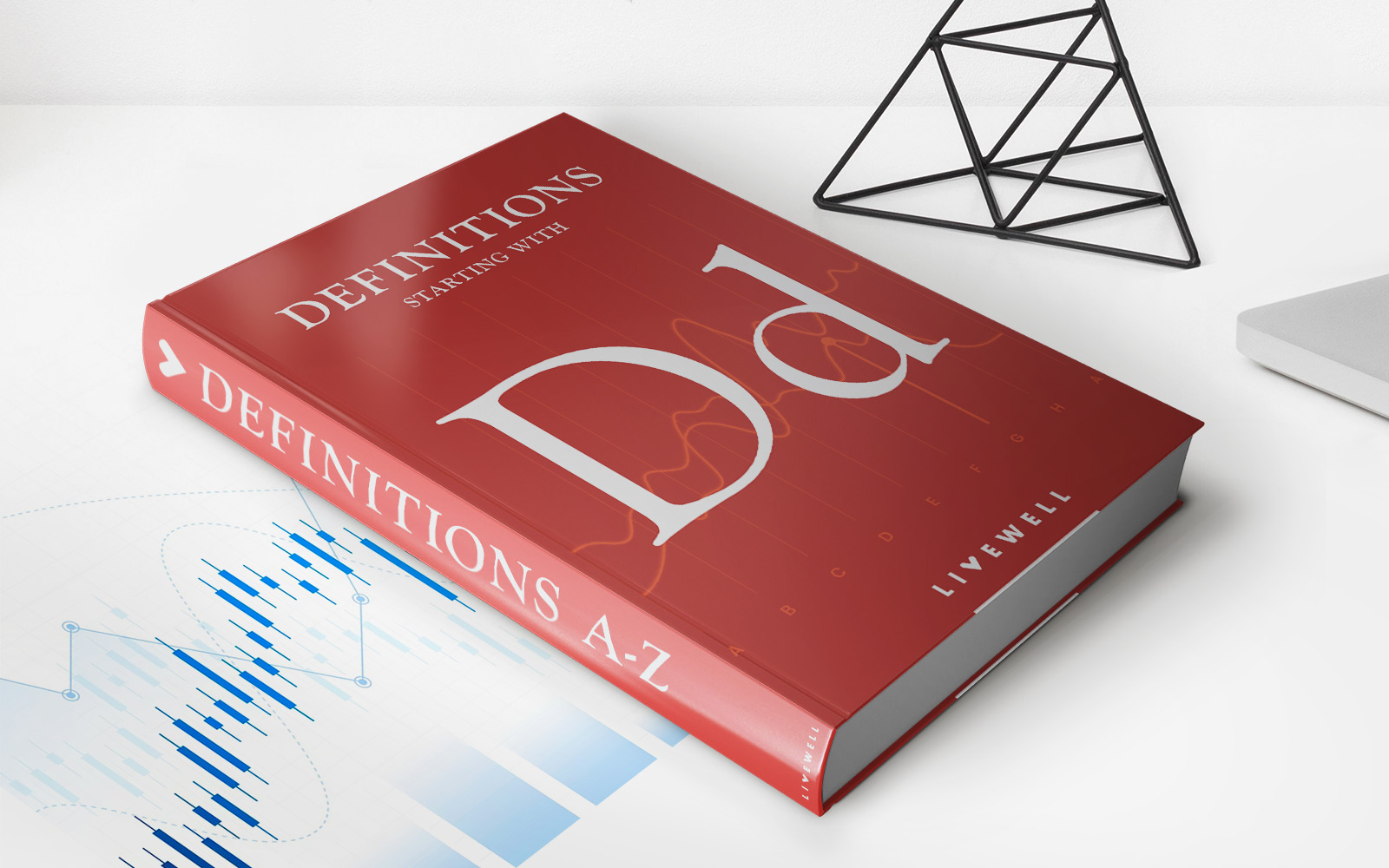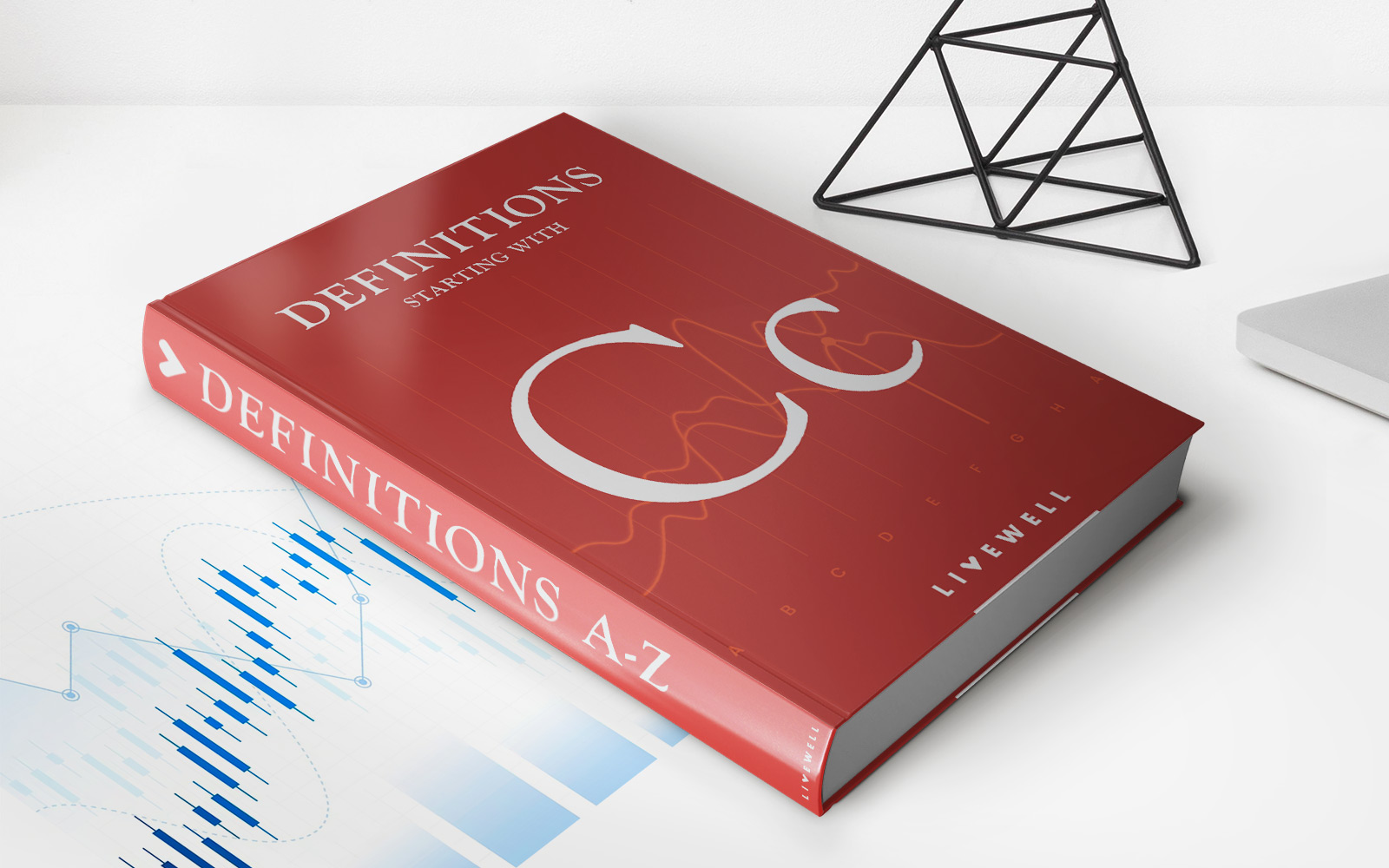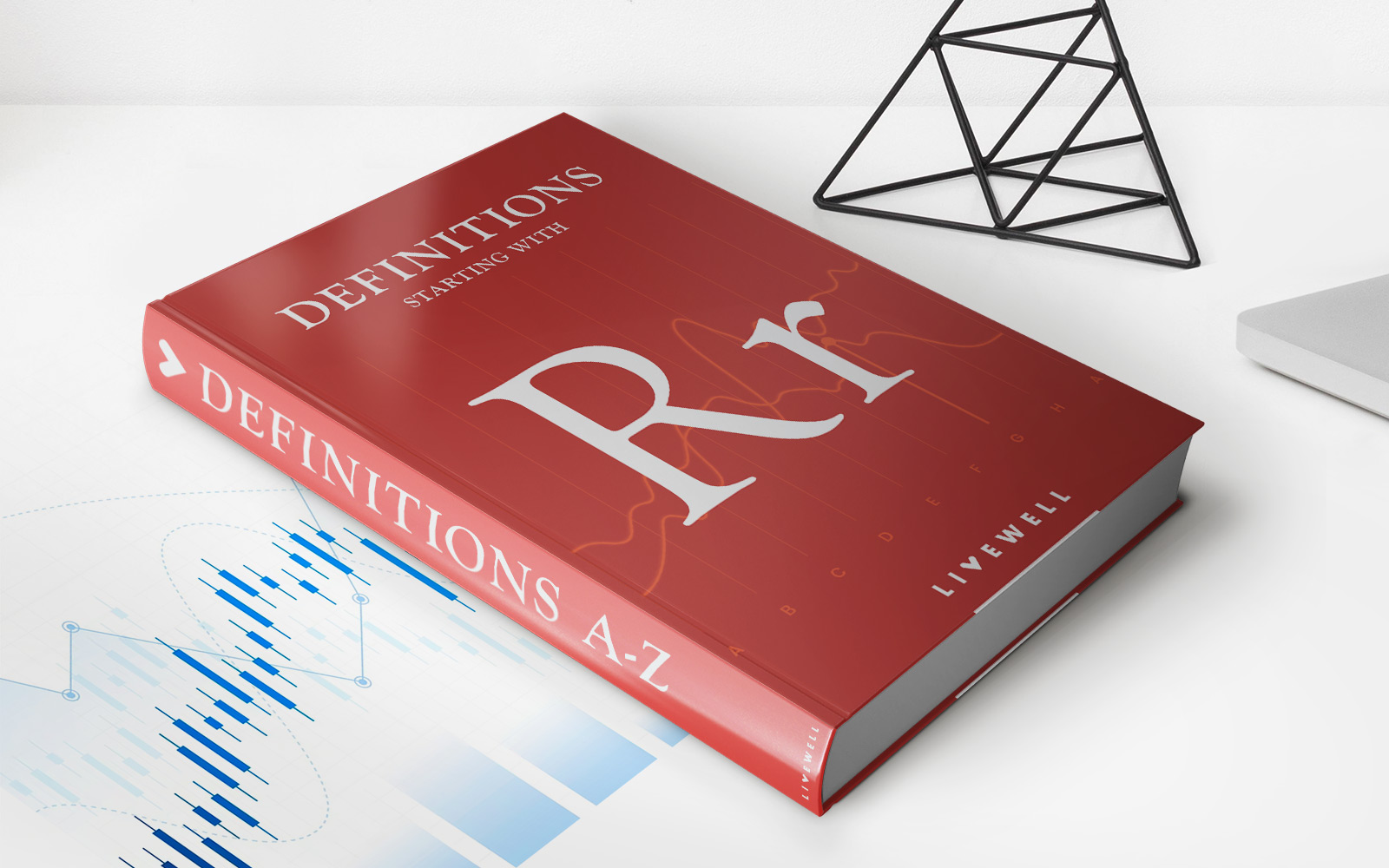

Finance
What Is A MEC In Life Insurance?
Published: November 14, 2023
Learn what a MEC (Modified Endowment Contract) is in life insurance and how it can impact your financial planning. Understand the benefits and limitations of MECs in the realm of finance.
(Many of the links in this article redirect to a specific reviewed product. Your purchase of these products through affiliate links helps to generate commission for LiveWell, at no extra cost. Learn more)
Table of Contents
Introduction
Life insurance is a vital component of financial planning, providing financial security and peace of mind for individuals and their loved ones. There are various types of life insurance policies available in the market, each with their own unique features and benefits. One particular type of policy that is often misunderstood is the Modified Endowment Contract, or MEC.
A MEC is a type of life insurance policy that has been structured in a way that it no longer qualifies for certain tax advantages under the Internal Revenue Code. While this may sound like a disadvantage, MECs can still offer valuable benefits to policyholders. Understanding what a MEC is and how it works is essential for making informed decisions when it comes to life insurance.
In this article, we will explore the definition and purpose of a MEC in life insurance, as well as the benefits and limitations associated with owning one. We will also delve into the tax implications of MECs and provide strategies for dealing with them if you find yourself facing this situation. Whether you are considering purchasing a MEC or already have one, this article will serve as a comprehensive guide to help you navigate the complexities of MECs in life insurance.
Definition of MEC
A Modified Endowment Contract, or MEC, is a type of life insurance policy that has been designed to accumulate cash value more quickly than a traditional life insurance policy. In order to qualify as a MEC, the policy must exceed certain premium limits set by the IRS. Once a policy crosses these premium thresholds, it loses its favorable tax treatment and is considered a MEC.
MECs are typically funded with a single premium payment or a series of premium payments made within a short period of time. This front-loading of premiums allows the policy to build up cash value rapidly. However, this accelerated growth comes at a cost, as MECs are subject to more restrictive tax rules than non-MEC life insurance policies.
It is important to note that not all life insurance policies become MECs. Only policies that meet the IRS criteria for excessive funding become classified as MECs. The IRS has established guidelines to determine whether a policy qualifies as a MEC, including premium limits based on the age of the insured and the size of the policy.
It is essential for policyholders to be aware of whether their policy is classified as a MEC, as it can have significant implications on the tax treatment of withdrawals and policy loans. Understanding the definition of a MEC is the first step in navigating the intricacies of this type of life insurance policy.
Purpose of MEC in Life Insurance
The primary purpose of a Modified Endowment Contract (MEC) in life insurance is to provide policyholders with an accelerated method of accumulating cash value within their policy. Unlike traditional life insurance policies, MECs allow for higher premium payments, which results in quicker growth of the policy’s cash value component.
MECs are often utilized by individuals who want to maximize the cash value growth potential within a life insurance policy, whether for personal financial goals or as an additional savings vehicle. The ability to accumulate cash value more rapidly can be advantageous in certain financial situations, such as supplementing retirement income, funding education expenses, or providing a source of emergency funds.
Furthermore, MECs offer policyholders the flexibility to access the accumulated cash value through policy loans or withdrawals. This can be especially beneficial during times of financial need, allowing individuals to tap into the value of their life insurance policy to meet expenses or bridge financial gaps.
Another purpose of MECs is to provide enhanced death benefit options. As the cash value within a MEC grows more rapidly, it can be used to increase the death benefit of the policy. This can be particularly advantageous for individuals who want to leave a larger inheritance or provide greater financial protection for their loved ones.
Overall, the purpose of a MEC in life insurance is to offer policyholders a policy structure that allows for accelerated cash value accumulation, increased death benefit options, and greater flexibility in accessing the policy’s value. It provides an avenue for individuals to align their life insurance needs with their broader financial goals and objectives.
Benefits of Owning a MEC
Owning a Modified Endowment Contract (MEC) can offer several advantages for policyholders. While the tax treatment of MECs is more restrictive compared to traditional life insurance policies, there are still significant benefits to consider. Here are some of the key advantages of owning a MEC:
- Accelerated Cash Value Growth: One of the primary benefits of owning a MEC is the ability to accumulate cash value within the policy at an accelerated rate. The front-loading of premiums allows for a more rapid accumulation of cash value, which can be accessed through policy loans or withdrawals.
- Flexibility in Accessing Cash Value: MECs provide policyholders with greater flexibility when it comes to accessing the cash value of the policy. Policy loans can be taken against the cash value, providing a source of funds for various financial needs. These loans can be used for personal expenses, education costs, or as a supplement to retirement income.
- Enhanced Death Benefit Options: The accelerated cash value growth in a MEC can also be utilized to increase the death benefit of the policy. This can be advantageous for individuals who want to leave a larger inheritance or provide greater financial protection for their loved ones.
- Tax-Deferred Growth: While MECs do not provide the same tax advantages as non-MEC life insurance policies, the growth of the policy’s cash value is still tax-deferred. This means that policyholders can enjoy the benefits of compounding growth within the policy without having to pay taxes on the gains each year.
- Asset Protection: In many states, the cash value of a life insurance policy, including MECs, is protected from creditors. This can provide an added layer of asset protection for policyholders, safeguarding the accumulated cash value from potential claims or legal actions.
It is important to note that the benefits of owning a MEC may vary depending on individual circumstances and financial goals. Before purchasing a MEC, it is recommended to consult with a financial professional who can assess your specific needs and provide guidance on whether a MEC aligns with your overall financial plan.
Limitations and Considerations of MECs
While Modified Endowment Contracts (MECs) offer certain benefits, they also come with limitations and considerations that policyholders should be aware of. Understanding these limitations can help individuals make informed decisions when it comes to purchasing and managing a MEC. Here are some important factors to consider:
- Tax Treatment: One of the main limitations of MECs is the more restrictive tax treatment compared to non-MEC life insurance policies. Any withdrawals or policy loans from a MEC are subject to income tax and potentially a 10% penalty if taken before the age of 59 ½. The tax implications of MECs should be carefully considered before making any withdrawals or loans.
- Impact on Death Benefit: The accelerated growth of the cash value within a MEC can affect the death benefit of the policy. Withdrawing or borrowing against the cash value can reduce the death benefit, potentially leaving loved ones with a smaller payout. It is important to evaluate the impact on the death benefit before making any financial decisions regarding a MEC.
- Surrender Charges: MECs often have surrender charges, which are fees imposed by the insurance company if the policy is surrendered or terminated early. These charges can be substantial, particularly in the early years of the policy. Policyholders need to be aware of the surrender charges and their duration before committing to a MEC.
- Higher Premiums: MECs typically require higher premium payments in order to achieve the desired accelerated cash value growth. This means that individuals considering a MEC should have the financial means to handle the increased premiums. It is crucial to carefully assess one’s financial situation and ensure that the premiums are affordable and sustainable.
- Loss of Non-MEC Benefits: Once a policy becomes classified as a MEC, it loses certain tax advantages that are associated with non-MEC life insurance policies. Policyholders should evaluate the importance of these benefits and determine if the accelerated cash value growth of a MEC outweighs the potential tax advantages of a non-MEC policy.
Before purchasing a MEC, it is recommended to consult with a financial advisor or insurance professional who can provide guidance on the potential limitations and considerations specific to your situation. By fully understanding the pros and cons of MECs, individuals can make informed decisions about whether this type of policy aligns with their financial goals and objectives.
Differences Between MECs and Non-MEC Life Insurance Policies
Modified Endowment Contracts (MECs) and non-MEC life insurance policies have distinct differences in terms of tax treatment, premium payments, and policy features. Understanding these differences is crucial when considering which type of policy best suits your financial needs. Here are some key contrasts between MECs and non-MEC life insurance policies:
- Tax Treatment: One of the primary differences between MECs and non-MEC policies is the tax treatment. MECs lose certain tax advantages and are subject to income tax and potential penalties on withdrawals and policy loans. Non-MEC policies, on the other hand, offer tax-deferred growth of the cash value and tax-free death benefits, provided they meet certain criteria under the Internal Revenue Code.
- Premium Payments: MECs typically require more substantial premium payments compared to non-MEC policies. The higher premium payments of MECs are designed to accelerate the cash value growth within the policy. Non-MEC policies offer more flexibility in premium payments, enabling policyholders to choose their desired payment frequency and amount, as long as they meet the policy’s requirements.
- Withdrawals and Loans: With MECs, any withdrawals or policy loans are subject to income tax and potential penalties if taken before the age of 59 ½. Non-MEC policies allow policyholders to access their cash value through withdrawals and loans without incurring income tax, as long as the policy remains in force and meets certain guidelines set by the insurance company.
- Death Benefit: The death benefit of MECs can be impacted by policy loans and withdrawals, as they can reduce the overall payout amount. Non-MEC policies typically provide a death benefit that remains unaffected by withdrawals or policy loans, allowing beneficiaries to receive the full intended amount.
- Estate Planning: MECs are often used for immediate cash value accumulation and are less common as estate planning tools. Non-MEC policies, especially those structured as trust-owned policies, can offer various estate planning benefits, such as providing liquidity to pay estate taxes or funding a buy-sell agreement.
It’s important to note that the choice between a MEC or non-MEC policy depends on individual circumstances and financial goals. Consulting with a financial advisor or insurance professional can help determine which type of policy is most suitable for your specific needs and objectives.
Tax Implications of MECs
Modified Endowment Contracts (MECs) have specific tax implications that policyholders should be aware of. Unlike non-MEC life insurance policies, MECs do not enjoy the same favorable tax treatment. Understanding the tax implications associated with MECs is crucial for making informed decisions and planning your financial strategy. Here are some key tax considerations related to MECs:
- Withdrawals and Policy Loans: Any withdrawals or policy loans taken from a MEC are subject to income tax. Additionally, if these withdrawals or loans are taken before the age of 59 ½, they may be subject to a 10% penalty tax. It’s important to carefully consider the tax implications before accessing the cash value of a MEC.
- Interest Considerations: The growth of the cash value within a MEC is considered taxable income when withdrawn, including any interest accumulated. This is different from non-MEC policies, where policyholders can potentially withdraw the basis (or premium payments) without incurring income tax.
- RMD Requirements: MECs are subject to Required Minimum Distributions (RMDs) once the policyholder reaches age 72 (70 ½ if born before July 1, 1949). Policyholders must begin taking distributions from the policy to satisfy the IRS requirements. Failure to take the required distributions can result in penalties imposed by the IRS.
- Estate Tax Considerations: MECs are included in the policyholder’s estate for estate tax purposes. This means that the death benefit paid out to beneficiaries may be subject to estate tax. Consult with an estate planning professional to mitigate potential estate tax liabilities.
- Limited 1035 Exchange Options: MECs have limited options for tax-free 1035 exchanges. A 1035 exchange allows the policyholder to transfer the cash value from one life insurance policy to another, potentially deferring taxes on the gains. However, MECs can only be exchanged for other MECs, which may limit the policyholder’s ability to take advantage of favorable tax strategies.
Policyholders considering a MEC should consult with a tax advisor or financial professional who can provide personalized guidance based on their specific circumstances. Understanding the tax implications of MECs is vital for planning your finances and making informed decisions related to the policy.
How to Determine if a Policy is a MEC
It is important for policyholders to be able to determine whether their life insurance policy qualifies as a Modified Endowment Contract (MEC). Identifying whether a policy is a MEC involves understanding the criteria set by the Internal Revenue Service (IRS). Here are the key steps to determine if a policy is a MEC:
- Review the Premium Payments: The first step is to assess the premium payments made towards the policy. If the total premium payments within the first seven years of the policy exceed the maximum premium limit set by the IRS, then the policy may be considered a MEC.
- Consider the 7-Pay Test: The IRS has established the 7-Pay Test as a way to determine if a life insurance policy qualifies as a MEC. The test compares the total premiums paid within the first seven years to the total amount of insurance coverage provided by the policy. If the premiums paid exceed the maximum limit based on the coverage amount, the policy will be classified as a MEC.
- Consult the Insurance Company: The insurance company that issued the policy will have information regarding whether the policy is a MEC. They can provide details on the premium payments and whether the policy meets the IRS criteria for a MEC. Contacting the insurance company directly is a reliable way to obtain accurate information about the policy.
- Seek Professional Advice: If you are uncertain whether your policy is a MEC, it is advisable to consult with a financial advisor or insurance professional. They have expertise in navigating the complexities of life insurance policies and can analyze the terms and conditions of your policy to determine its classification.
It is important to note that determining whether a policy is a MEC can have significant implications for its tax treatment. If the policy is a MEC, certain tax advantages may be lost, and policyholders need to be aware of the potential tax consequences of withdrawals, loans, and the death benefit.
Ultimately, understanding the criteria and seeking professional guidance are essential for determining whether a policy is a MEC. By doing so, policyholders can make informed decisions and effectively manage their life insurance policies.
Strategies for Dealing with a MEC
Discovering that you have a Modified Endowment Contract (MEC) can bring about unique challenges and considerations. However, there are certain strategies that policyholders can employ to effectively manage their MECs and navigate the associated tax implications. Here are some strategies for dealing with a MEC:
- Assess Your Financial Goals: Evaluate your financial objectives and determine if the MEC aligns with your long-term plans. Consider the need for life insurance, the policy’s cash value growth potential, and its impact on your overall financial strategy.
- Review Withdrawal Options: Understand the tax consequences of withdrawals from your MEC. Consider the policy’s surrender charges and potential tax liabilities before making any withdrawals or policy loans. Consult with a tax or financial advisor for guidance on managing withdrawals.
- Manage Annual Premium Payments: Evaluate whether continuing to pay premiums is in line with your current financial situation and goals. Consider whether reducing or stopping premium payments makes sense for your circumstances and account for any potential tax implications.
- Utilize Policy Loans: Explore the option of taking policy loans against the cash value of your MEC. By borrowing against the policy, you can access funds while potentially minimizing the tax impact. However, be mindful of any interest accrued and the impact on the death benefit.
- Explore 1035 Exchange Opportunities: Although options for tax-free 1035 exchanges with MECs are limited, it may still be worthwhile to assess if there are alternative life insurance policies that better align with your goals and offer more favorable tax treatment. Consult with a financial professional to explore your options.
- Consult with Professionals: Seek the advice of financial advisors, tax professionals, and insurance experts who specialize in MECs. They can offer personalized guidance based on your specific circumstances and help navigate the intricacies of managing a MEC.
Remember that each individual’s situation is unique, and strategies for dealing with a MEC may vary. It is essential to carefully consider your financial goals, consult with professionals, and weigh the potential benefits and consequences before making any decisions related to your MEC.
By employing informed strategies, you can effectively manage your MEC and make the most of your life insurance policy within the confines of the tax regulations.
Conclusion
Modified Endowment Contracts (MECs) offer policyholders an accelerated method of accumulating cash value within a life insurance policy. While MECs come with certain limitations and tax implications, they can still provide valuable benefits for individuals looking to maximize their cash value growth and access funds when needed.
Understanding the definition and purpose of a MEC is essential for making informed decisions when it comes to life insurance. Policyholders should carefully consider their financial goals, tax implications, and the impact on the death benefit before purchasing or managing a MEC.
MECs differ from non-MEC life insurance policies in terms of tax treatment, premium payments, and policy features. The tax implications of MECs require careful consideration, as they can affect withdrawals, policy loans, and the overall tax-deferred growth of the policy’s cash value.
Determining whether a policy is a MEC involves assessing premium payments and considering the IRS criteria. Insurance companies and financial professionals can assist in determining the classification of a policy. Once identified as a MEC, policyholders can employ strategies such as evaluating financial goals, managing withdrawals, exploring 1035 exchange options, and seeking professional advice to effectively navigate the complexities.
In conclusion, a MEC can be a valuable tool for policyholders who prioritize accumulated cash value growth within their life insurance policy. However, it is essential to carefully analyze the tax implications, limitations, and considerations associated with MECs to ensure they align with individual financial goals and needs.
Consulting with a financial advisor or insurance professional is highly recommended to gain personalized guidance and make informed decisions regarding MECs. By understanding and strategically managing a MEC, policyholders can optimize the benefits while navigating the potential challenges.














